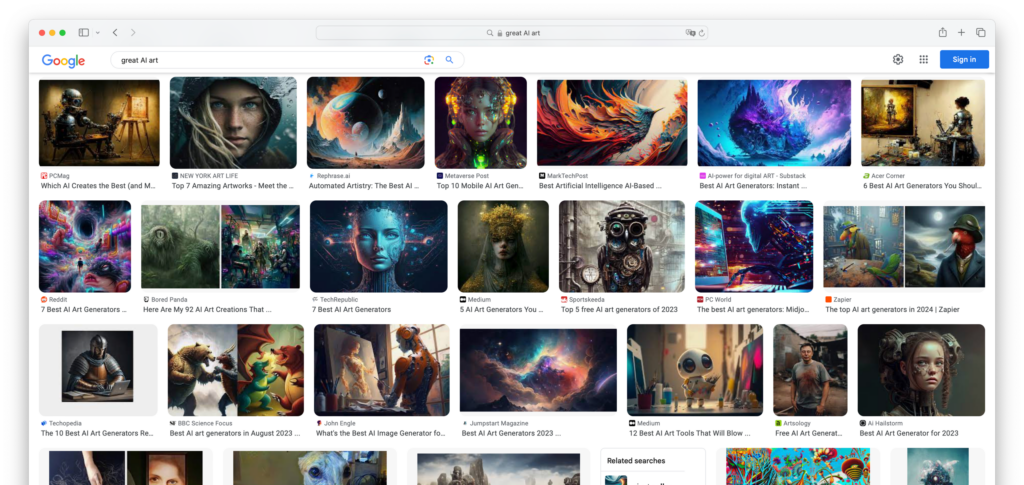The San Francisco Chronicle is in financial trouble. InfoWorld stops printing. Time Magazine redesigns its print edition and fires 50 people. Quo vadis, newspapers?
You might ask whether newspapers have a future at all?—“Change or die” is the media’s new watchword. Here are the 10 major misconceptions that hold newspapers back:
Myth: We pay for printed content Fact: News content was always free
The price we pay for newspapers merely covers the paper and printing costs. The management, writing, editing and delivery of newspapers is fully covered by advertising. Economically, it’s only fair that we don’t pay for online content. Don’t tell me you’ve never heard that…
Myth: There is not enough money in online ads Fact: Newspapers don’t care about online ads
Why are print ads expensive and online ads so cheap? Print ads are neither measured nor measurable, they are perceived as prestigious no matter how much impact they have. Things are changing though:
The latest numbers from the Newspaper Association of America show print newspaper advertising revenue continuing to drop: down 1.7 percent in 2006 to $46.6 billion. No news there—the usual doom and gloom. But there’s another interesting number in the NAA report: Advertising revenue for online newspaper sites jumped 31.5 percent in 2006, to $2.7 billion.” Source: Recovering Journalist
Put more effort and care into your website, hire your own salesmen, sell online ads together with print ones, and understand and explain to your customers that the goal of an online ad is not to be clicked, but to be seen. Just like the paper ad. Reduce ad space to one banner per page, make it big and nice and sell it appropriately. We don’t mind good adverts. We don’t click them, but we didn’t click on paper ads either. Don’t allow online what you would never do in print. And once and for all: no popups. Everybody hates popups and companies that use them to advertise their stuff make us angry.
Myth: Newspapers need on- and offline identities Fact: Newspapers need one identity
The brand consultant that came up with the idiotic idea of creating separate brands for the print and the online edition should be beaten with a stick. Beaten really hard. The “special” online identity communicates: “This is not the real thing. It’s a sloppy version of the paper.” Get rid of that silly “online” or “.com” or “.co.uk” or whatnot attribute after your precious brand. The New York Times got it right.
Myth: Newspapers need closed archives Fact: Closed archives destroy access
How much money did you make with your precious archives, and how much traffic did you lose? Newspapers need to open their archives, cross link their articles and get Google to index as much of their stuff as possible. Put ads on your old content, for heaven’s sake.
As for TimesSelect—which runs so contrary to the first law of internet thermodynamics, according to which, unless you are offering financial news or porn, online content should always be free—it hides no more than three percent of the paper’s content behind its subscription wall. And this so-called “premium content” generates just under $10 million a year, a tiny slice of the company’s $350 million digital revenue pie. —The Huffington Post
Myth: Newspaper pages need to burst with stuff Fact: Readers want nicely presented information
Print and online are somewhat different in terms of what can and should be done, but for serious companies the quality standards should be the same. Newspapers allow the biggest information design horrors online, things they’d never allow in a printed edition. Treat your online design as you treat your printed edition, in terms of branding, information design and advertisements. Always ask yourself: would I allow that in print?
Myth: People are stupid, journalists are smart Fact: The collective is smarter than you
I wonder who came up with that idea? A journalist? People are often much smarter than you think, and collectively they can outsmart any journalist a thousand times. Using the intelligence of your readership makes far more sense than insulting it.
Myth: Journalists = professional, bloggers = smearers Fact: Bloggers are journalists
Yeah, right… And ice from the iceman is colder and tastes better than ice from the fridge… Bloggers are journalists. Some suck, some rock. Social media forces newspapers to become more independent, so this doesn’t happen any more.
Myth: The web is just a trend. No need to panic. Fact: Change or die
Yeah, and the telegraph will come back and end this silly email trend. Let me assure you: what comes after the Internet will be even more fatal to your business if you don’t adapt soon. Your website is your publishing tool. The paper is one exciting product of that interactive publishing process. You need to work on your paper as well: increase its readability, scan-ability and usability.
Myth: Without paper, journalism and democracy die Fact: Social news is democratic news
You may say I’m a dreamer, but… — we have never had as many journalists as we do at the moment. And democratization of markets and politics is on the rise. Old media dies, because it is authoritarian and can be abused as an instrument of propaganda and suppression:
AsiaMedia: “Malaysia’s traditional media has been ordered not to mention, quote or pursue stories exposed by bloggers and online news sites, which are emerging as a powerful new media force. A security ministry circular dated March 13 told top editors of a dozen mainstream newspapers and five television stations that they must not “give any consideration whatsoever” to anti-government material posted online.”
Journalists are not going to die out. The more information we have, the more we need intelligent filters; newspapers should integrate:
Myth: Newspapers need to become social networks Fact: Newspapers need to become Wikis
Newspaper readers are not friends. Good readers are supposed to be critical about each other and not pat each other’s backs. There is a much more obvious technological model for newspapers.
I believe that newspapers need to make the development of a story transparent, they need to cross link and cross reference articles, they need to allow users to write articles and collectively correct each other’s mistakes and they need to become at least as accurate as the Encyclopedia Britannica. Got it? Yes, newspapers should use Wiki technology. There is a lot to improve on the front end, but the content generation and optimization model is an almost perfect fit.
UPDATE: This is what it looks like (The Washington Post as a Wiki). More info here.
Links
- The Doc Searls Weblog: How to Save Newspapers
- Robert Scoble: Newspapers are dead…
- Don Dodge: Has the Internet killed newspapers, magazines, music and video?
- Mathew Ingram: Print may be dying, but the news is not
- Larry Digman: How journalism education should change
- Rafat Ali: IDG’s InfoWorld Magazine To Close Down; Focus on Online/Events
- Scott Karp: Can InfoWorld Survive The Transition From Print To Online Publishing? and Reinventing The News Business Requires A Little Imagination
- Dan Gillmor: Save-the-Newspapers Columnist Fires Back, Misses
- Dave Winer: Trouble At The Chronicle
- Ryan: Two obstacles to improving online newspapers
- Drumsnwhistles: Local Newspapers Are NOT Dead, But They Must Evolve
- Recovering Journalist: Internet ad revenue is going up, print ad revenue is going down
- Radar.oreilly.com: The San Francisco Chronicle is in financial trouble,
- Publishing2.com: InfoWorld stops printing
- The Guardian: New stars of the newsroom
- Asiamedia: Malaysia tells media to ignore online news sites
- Ryan Sholin: Two obstacles to improving online newspapers
- Crunchnotes: Print Media Demise, Cont.
- InfoWorld: InfoWorld Brand Moves Online and InfoWorld folds print mag to focus on online and events
- Adage: The Post Advertising Age
- Arianna Huffington: News 2.0: the Hybrid Future is Kicking Down the Door
- BBC: Web ad spend overtakes newspapers
- WKLondon: Razor sharp campaign for TheGuardian
- Seeking Alpha: New York Times Company Forecasts 30% Rise in Digital Revenue This Year





